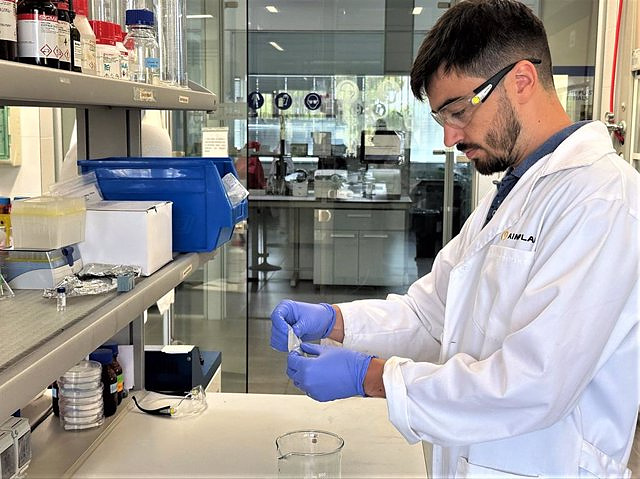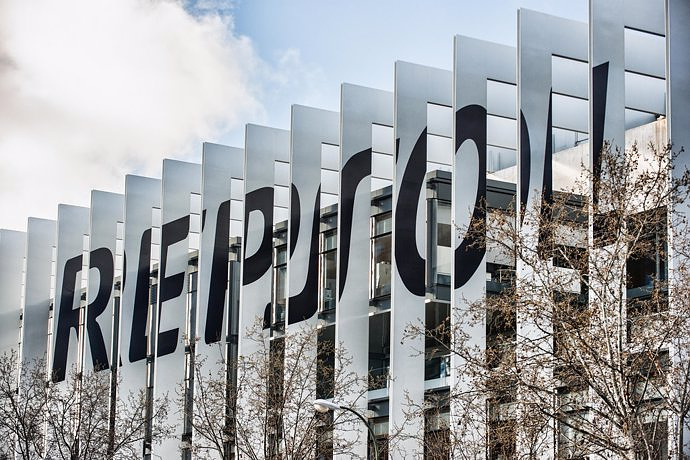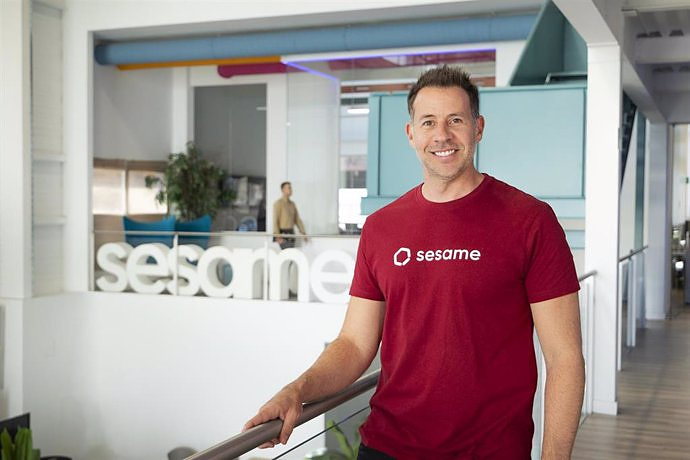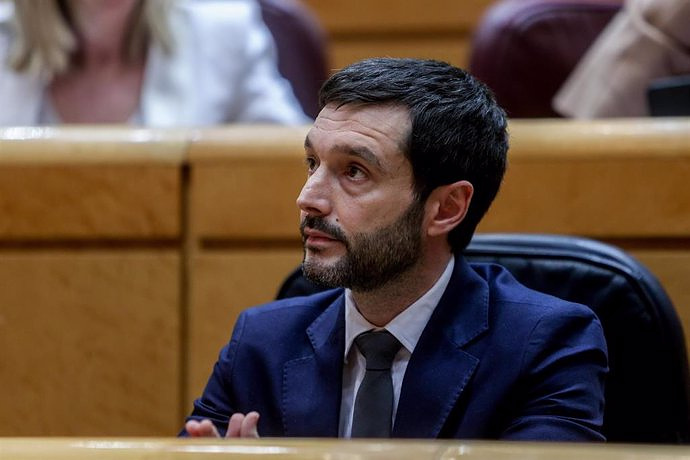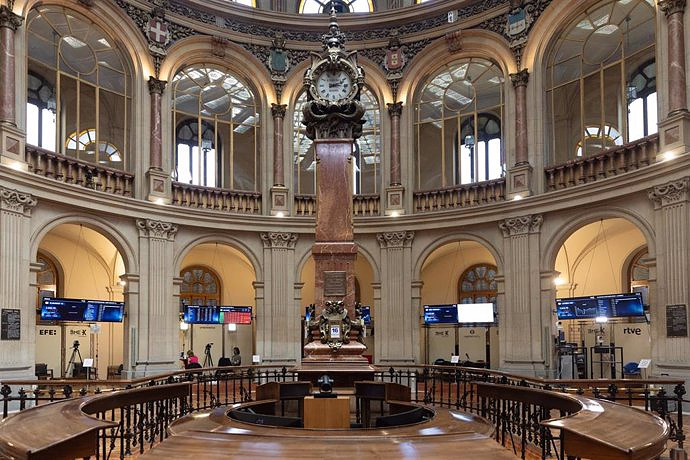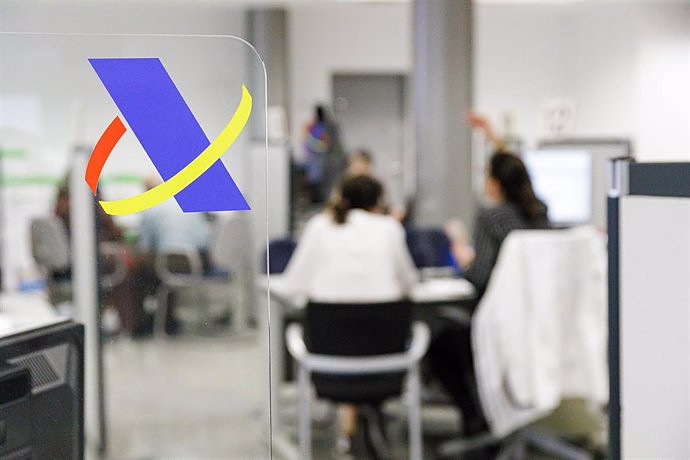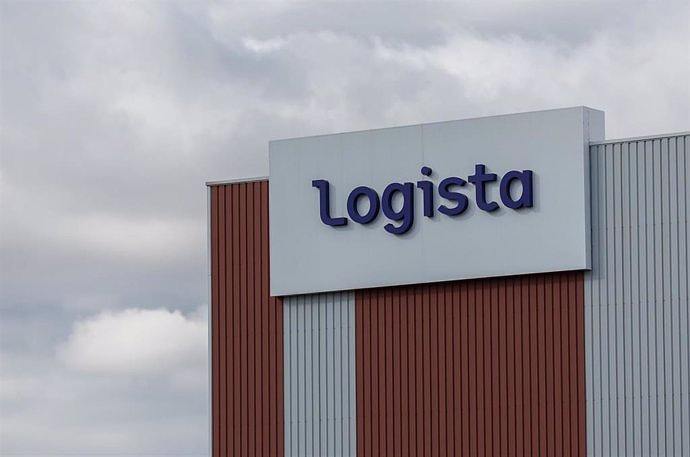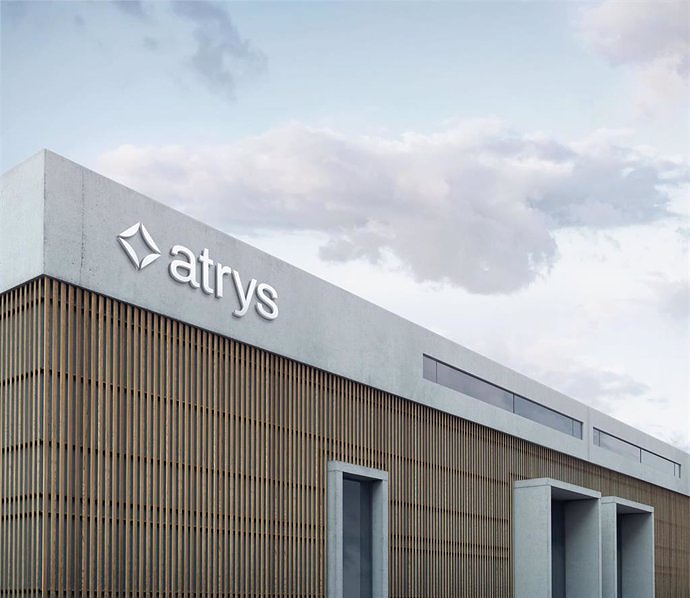VALENCIA, 23 Aug. (EUROPA PRESS) -
The Technological Institute of Plastics, Aimplas, has worked on a project, BioICEP, which converts non-biodegradable plastic waste into new natural materials for the packaging and pharmaceutical sectors, as reported by this research center in a statement.
Aimplas has developed chemical and biotechnological pretreatments to transform synthetic plastics into biodegradable bioplastics. Thus, it has applied methods based on microwaves and reactive extrusion that accelerate the biodegradation of conventional plastics.
The BioICEP (Bio-Innovation of a Circular Economy for Plastic) project in which the Valencian center participates began in February 2020 and is financed by the Horizon 2020 program. Its objective is to develop alternatives to plastic made from traditional oil that are sustainable and respectful with the environment.
This initiative has used "an innovative cascade process through the application and combination of chemical and biological methods to transform plastic waste of fossil origin into its natural and biodegradable substitutes for use in the packaging and pharmaceutical sector", the institute has specified.
The role of Aimplas in the project has consisted of the pretreatment of plastics by thermochemical degradation assisted by microwaves. Through this new technology "promising results have been achieved, converting non-biodegradable plastic waste, such as low-density polyethylene waste, into easily biodegradable materials and obtaining total degradation in less than 28 days," the center explained.
Likewise, he pointed out that another of the techniques that has been developed is the depolymerization of polyamides, obtaining the monomers of these polymers that can be used by microorganisms to convert them into other products of interest, such as bioplastics.
Likewise, Aimplas has developed other technologies based on reactive extrusion that allow introducing changes in the structure of the polymeric chains to facilitate the biodegradation of these plastics.
In addition, the Technological Institute of Plastics is in charge of coordinating the dissemination and exploitation of results, as well as communication activities.
BioICEP is meeting its goal of developing processes to reduce the amount of plastic waste in the environment. For this, the project is counting on the support of partners from different countries and with different areas of knowledge that is allowing us to face the challenge of developing alternative processes to improve recycling from a multidisciplinary point of view, "essential to have a successful project". , has exposed the Valencian institute.
Aimplas has added that the solution proposed by BioICEP is focused on the use of three technologies that accentuate, accelerate and increase the degradation of plastics to levels much higher than those that can be achieved today. It is a triple action depolymerization system that will break down plastic waste through three consecutive processes.
First, chemical disintegration processes, including a new microwave-based technology to reduce the molecular weight of base polymers to facilitate biodegradation; and secondly, biocatalytic digestion with enzymes improved by different innovative techniques including screening through fluorescent sensors and directed evolution.
These are joined thirdly by microbial consortia developed from the best individual strains, which, combined, carry out highly efficient degradation of mixed plastic waste streams. The products of this degradation process will be used for the synthesis of new polymers or other bioproducts to enable the circular economy of new plastics from waste.
Consortium and financing
The BioICEP project is funded by the European Union within the framework of the H2020 program, topic CE-BIOTEC-05-2019 "Microorganism communities for plastic bio-degradation", agreement number 870292.
In addition to Aimplas, thirteen partners from nine European and Asian countries participate: Acteco (Spain), Avecom (Belgium), Technische Universitat Clausthal (Germany), Institut za Molekularnu Genetiku i Geneticko Inzenjerstvo (Serbia), Institute of Experimental and Technological Biology and Logoplaste Innovation Lab lda (Portugal), Technological University of The Shannon and The Provost, Fellows, Foundation Scholars

 Exploring Cardano: Inner Workings and Advantages of this Cryptocurrency
Exploring Cardano: Inner Workings and Advantages of this Cryptocurrency Seville.- Economy.- Innova.- STSA inaugurates its new painting and sealing hangar in San Pablo, for 18 million
Seville.- Economy.- Innova.- STSA inaugurates its new painting and sealing hangar in San Pablo, for 18 million Innova.- More than 300 volunteers join the Andalucía Compromiso Digital network in one month to facilitate access to ICT
Innova.- More than 300 volunteers join the Andalucía Compromiso Digital network in one month to facilitate access to ICT Innova.-AMP.- Ayesa acquires 51% of Sadiel, which will create new technological engineering products and expand markets
Innova.-AMP.- Ayesa acquires 51% of Sadiel, which will create new technological engineering products and expand markets Prosecutor's Office requests the filing of a new case against Shakira for alleged tax crime
Prosecutor's Office requests the filing of a new case against Shakira for alleged tax crime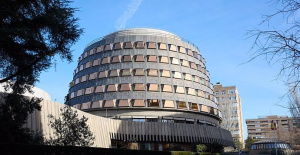 The Constitutional Court endorses the law that criminalizes harassment in abortion clinics
The Constitutional Court endorses the law that criminalizes harassment in abortion clinics PSC and Junts join the commitment not to agree with Vox or Aliança Catalana
PSC and Junts join the commitment not to agree with Vox or Aliança Catalana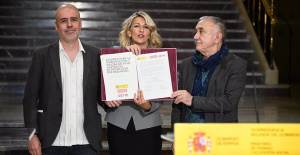 This is the subsidy reform: higher amounts and beneficiaries and compatibility of unemployment with a salary
This is the subsidy reform: higher amounts and beneficiaries and compatibility of unemployment with a salary How Blockchain in being used to shape the future
How Blockchain in being used to shape the future Not just BTC and ETH: Here Are Some More Interesting Coins Worth Focusing on
Not just BTC and ETH: Here Are Some More Interesting Coins Worth Focusing on They develop devices for the precise diagnosis of cancer patients
They develop devices for the precise diagnosis of cancer patients UMH researchers are working on a high-quality apricot crop that requires less irrigation water
UMH researchers are working on a high-quality apricot crop that requires less irrigation water The UPV develops an application to improve the quality of life of patients with glioblastoma
The UPV develops an application to improve the quality of life of patients with glioblastoma A sensor system obtains the fingerprint of essential oils and detects if they have been adulterated
A sensor system obtains the fingerprint of essential oils and detects if they have been adulterated A million people demonstrate in France against Macron's pension reform
A million people demonstrate in France against Macron's pension reform Russia launches several missiles against "critical infrastructure" in the city of Zaporizhia
Russia launches several missiles against "critical infrastructure" in the city of Zaporizhia A "procession" remembers the dead of the Calabria shipwreck as bodies continue to wash up on the shore
A "procession" remembers the dead of the Calabria shipwreck as bodies continue to wash up on the shore Prison sentences handed down for three prominent Hong Kong pro-democracy activists
Prison sentences handed down for three prominent Hong Kong pro-democracy activists ETH continues to leave trading platforms, Ethereum balance on exchanges lowest in 3 years
ETH continues to leave trading platforms, Ethereum balance on exchanges lowest in 3 years Investors invest $450 million in Consensys, Ethereum incubator now valued at $7 billion
Investors invest $450 million in Consensys, Ethereum incubator now valued at $7 billion Alchemy Integrates Ethereum L2 Product Starknet to Enhance Web3 Scalability at a Price 100x Lower Than L1 Fees
Alchemy Integrates Ethereum L2 Product Starknet to Enhance Web3 Scalability at a Price 100x Lower Than L1 Fees Mining Report: Bitcoin's Electricity Consumption Declines by 25% in Q1 2022
Mining Report: Bitcoin's Electricity Consumption Declines by 25% in Q1 2022 Oil-to-Bitcoin Mining Firm Crusoe Energy Systems Raised $505 Million
Oil-to-Bitcoin Mining Firm Crusoe Energy Systems Raised $505 Million Microbt reveals the latest Bitcoin mining rigs -- Machines produce up to 126 TH/s with custom 5nm chip design
Microbt reveals the latest Bitcoin mining rigs -- Machines produce up to 126 TH/s with custom 5nm chip design Bitcoin's Mining Difficulty Hits a Lifetime High, With More Than 90% of BTC Supply Issued
Bitcoin's Mining Difficulty Hits a Lifetime High, With More Than 90% of BTC Supply Issued The Biggest Movers are Near, EOS, and RUNE during Friday's Selloff
The Biggest Movers are Near, EOS, and RUNE during Friday's Selloff Global Markets Spooked by a Hawkish Fed and Covid, Stocks and Crypto Gain After Musk Buys Twitter
Global Markets Spooked by a Hawkish Fed and Covid, Stocks and Crypto Gain After Musk Buys Twitter Bitso to offset carbon emissions from the Trading Platform's ERC20, ETH, and BTC Transactions
Bitso to offset carbon emissions from the Trading Platform's ERC20, ETH, and BTC Transactions Draftkings Announces 2022 College Hoops NFT Selection for March Madness
Draftkings Announces 2022 College Hoops NFT Selection for March Madness